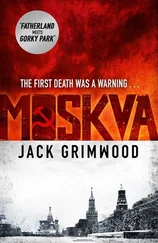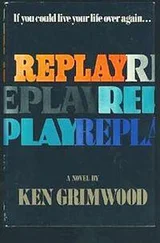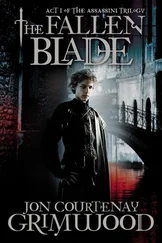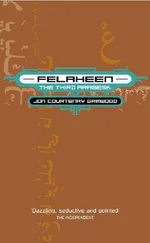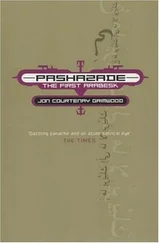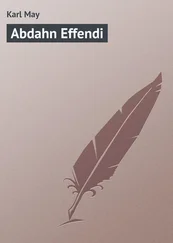“Your choice . . .”
St. Cloud poured himself a generous measure of Courvoisier and swilled it round the balloon, bending close to inhale the heavy fumes. “Of course,” he added as an apparent afterthought, “even if this were all true . . . It doesn’t change the fact that Hamzah is guilty as hell. And there’s always the future ownership of that refinery to consider . . .”
“Plus the Midas oil fields in central Sudan and certain Mediterranean offshore sites.”
“Quite,” said St. Cloud. “Now, should a senior official find himself in a position to facilitate the transfer of Hamzah’s part of those holdings . . . After they’ve been legally forfeited by Hamzah, obviously. Then any country intent on consolidating its interests would undoubtedly be very generous.”
“Generous?”
“A commission is usual in these cases.”
“Five percent?”
St. Cloud looked shocked. “One or two. Three at the absolute maximum.”
“And what would three percent come to?”
The Marquis told him.
Raf decided to take that drink after all.
The trial proper began two days after Raf’s visit to the house at Aboukir. On the morning of 5th Safar 1472, a day that Raf thought of as Monday 1st November . . .
Within the first hour, Zara reached the inescapable conclusion that the man whose bed she’d twice shared was about to destroy her father. So now she sat at a long desk at the front of the temporary court and shuffled papers, while atrocity after atrocity unravelled itself on-screen.
Atrocity was the word Raf used to describe what the judges were seeing. It wasn’t a term to which Zara felt she could object.
Hani, however, sat at the back. And although the steady swing of her legs, which earlier had been flicking backward and forward to scuff the floor, had stopped completely, she resolutely watched one of the screens, her dark eyes darting from horror to horror; though whether to see more or allow herself to take in less was hard to tell.
She shouldn’t have been on board the SS Jannah anyway, which the Khedive had declared Iskandryian soil for the duration of Hamzah’s trial. But Khartoum had been strangely willing to be persuaded that he should accompany her, and the soldiers at the door had done nothing but stare at the cat on her shoulder. As a result, she now sat beside the skeletal Sufi in a makeshift public gallery, watching things she was pretty sure she didn’t want to see.
The picture quality was terrible, the contrast too sharp, and the camera juddered with the reporter’s every step, none of which really mattered. It was what the camera showed that counted. Oh, and spinning numbers near the bottom that gave time, date and an accurate GPS reading.
The ownership of the battleground itself was moot. So the location was translated underneath as “Northeastern Sudan/Southern Egypt (disputed) . . .”
At first, as Raf gestured at the early images, inviting the judges, press and public to watch the evidence being presented, he’d thought the juddering was due to gyroscope malfunction in the original handheld camera, but as the lens panned across another dead boy, fist stuffed into his mouth to prevent himself from crying out, he realized the gyroscope just hadn’t been able to compensate for the photographer’s shock.
Raf pushed a button on his control and the picture froze.
The assignment had both made and destroyed Jean René; turning the man into a living saint and consigning him to forty years of knowing his single most significant work was already behind him.
Raf stepped back to give the judges clear sight of the elderly, shock-haired Parisian, who stood in a witness box built overnight by carpenters at the Khedive’s order.
“Who took these photographs?”
The elderly man stared down his hawklike nose. “You know who took those,” he said crossly. “Why else would I be here . . . ?”
Raf smiled sympathetically. Nodding to show he understood the tumble of emotions through which the man must be going. “Who took these photographs?” Raf repeated, his voice loud enough to carry to the public gallery.
“I did,” said Jean René.
“You did?” Flipping open a leather notebook, Raf pretended to check its screen. Working hardware, decent lighting and reliable power had ceased to be a problem the moment Tewfik Pasha relocated the court to the ballroom of the SS Jannah .
“You are a war reporter?”
“I was,” said the man bitterly.
“And you gave up when?”
The man’s leonine mane of white hair rippled as he nodded towards the frozen screen, where the dead boy still lay with one fist in his open mouth. “I gave up after that,” he said. “How could I not?”
“And you became what?” Raf asked, glancing again at his notebook.
“I founded Sanctuary,” said Jean René, staring at the judges. His gaze bathed St. Cloud, the Graf and Senator Liz in ill-hidden contempt. “So long as countries like yours fight their wars by proxy there will always be work for people like me.”
Senator Liz opened her mouth but shut it again at a glance from St. Cloud.
“Excellency . . .” St. Cloud’s tone made it clear Raf could continue.
Only Raf was thinking, of nothing.
Less than nothing.
“Excellency . . .”
Raf came awake with a start, glanced at the judges and realized it was still his witness, but he had no questions for Jean René. Not real ones. Hamzah had been there, DNA matching marked him out as the soldier found on the battlefield by the Red Cross. His fingerprints, taken by a teenage Jewish nurse who hoped to reunite the boy with his parents, had identified Hamzah as the person who loaded and fired the HK21e machine gun.
If that wasn’t enough, the boy’s inky thumbprint validated a typed confession found locked in a Chubb in Koenig Pasha’s study; typed, it seemed, on an old Remington Imperial, to ensure no trace was left on any datacore. The confession had been witnessed by a certain Major Koenig Bey. A copy of this rested among the documents piling up in front of the three judges.
As for the defendant himself, guilt oozed from Hamzah’s skin like sweat. Expensive and overtailored though his clothes might be, they still hung from his diminished body like a beggar’s rags. Everything about the man conceded defeat.
There was very little chance that Raf could blow this case. And inside his own head, Raf was already writing his closing speech, the winning address he’d make once all the evidence, both direct and circumstantial, had been heard. Once the transcripts, old newsfeeds and actual weapons had been examined.
The press were already his, Raf could tell that just from watching them. The public gallery were glued to every unfolding moment. It was undeniably time to wind up his examination of this witness and let Zara take the floor.
Flicking his eyes from the photograph on-screen, back to where Jean René stood in the makeshift witness box, Raf opened his mouth to thank the man and did what he’d been avoiding doing all morning, somehow allowed his gaze to shift past René to where Zara sat.
Pain.
Absolute loneliness.
Enough of both to rock the courtroom around Raf.
If ever he’d needed the fox it was now. The fox would have known what to do because the fox always knew what to do. That was why it existed. To take from Raf the need to make those kind of decisions.
Ashraf al-Mansur, sometime ZeeZee, shuddered at this sudden understanding. Or else the courtroom shuddered. Whatever, something did as his eyes adjusted. And the rococo magnificence of the ballroom, with its borrowed ceiling, faux marble and fat gilded cherubs faded to a pixillated blur.
Читать дальше

